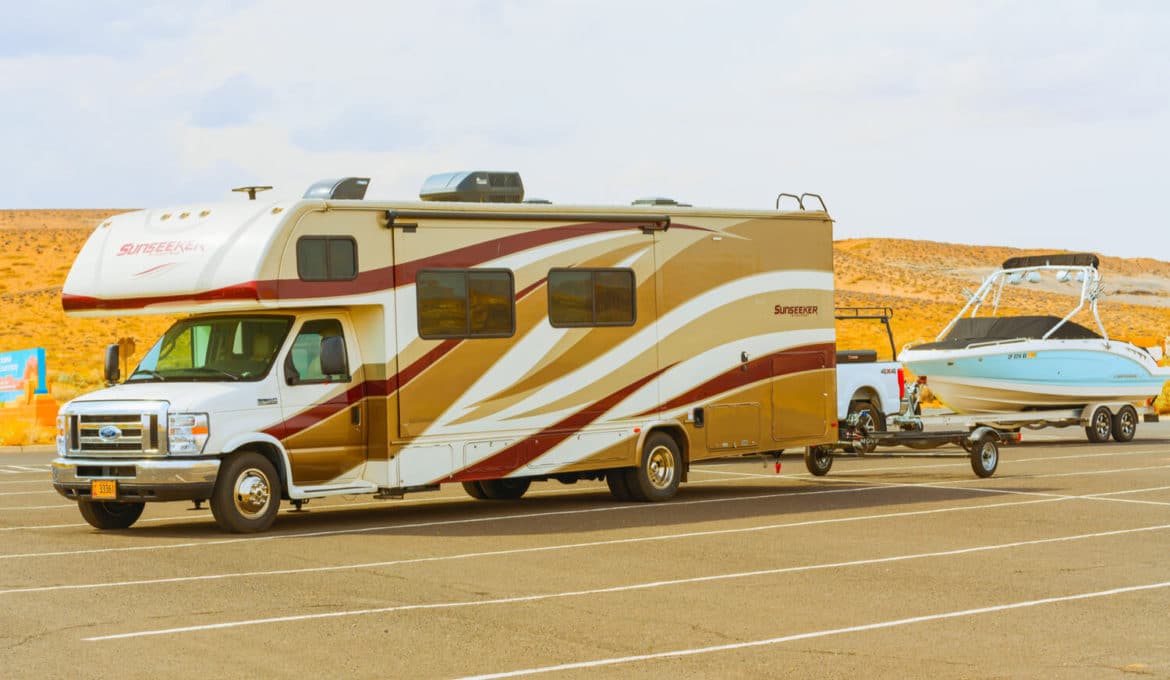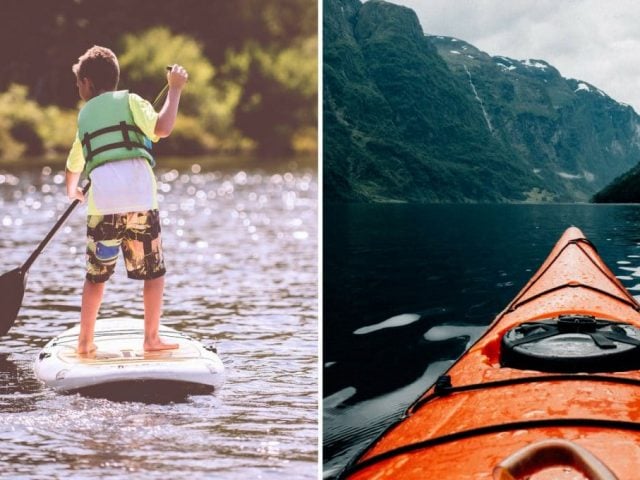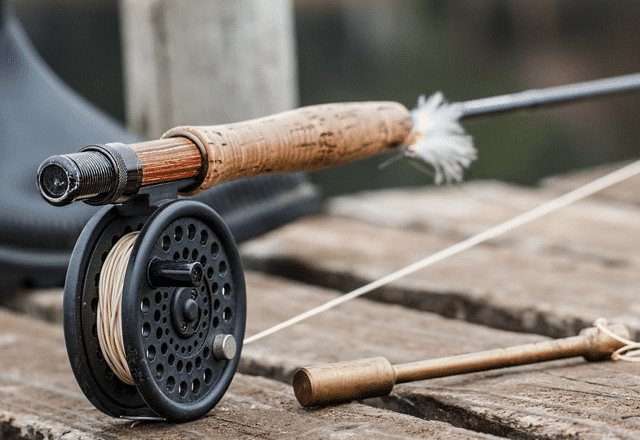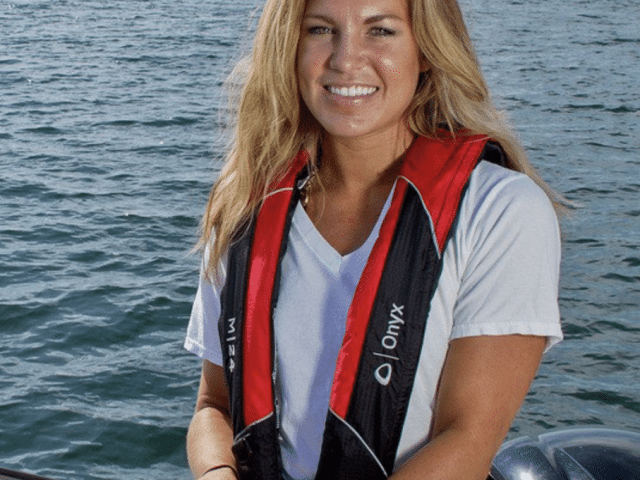Many RV owners tow a vehicle behind their camper to easily get around once they reach their destination. But what about towing a boat with your motorhome? Is it possible? Is it safe?
The short answer is that, yes, it can be done and safely, but there are certain precautions you must take. Not all RVs are capable of towing a boat and not all boats are safe to be towed by an RV.
So how do you decide if your RV and boat are compatible and if you can tow a boat safely? Fortunately, this guide will help you do just that.
What Is Your RV’s Towing Capacity?
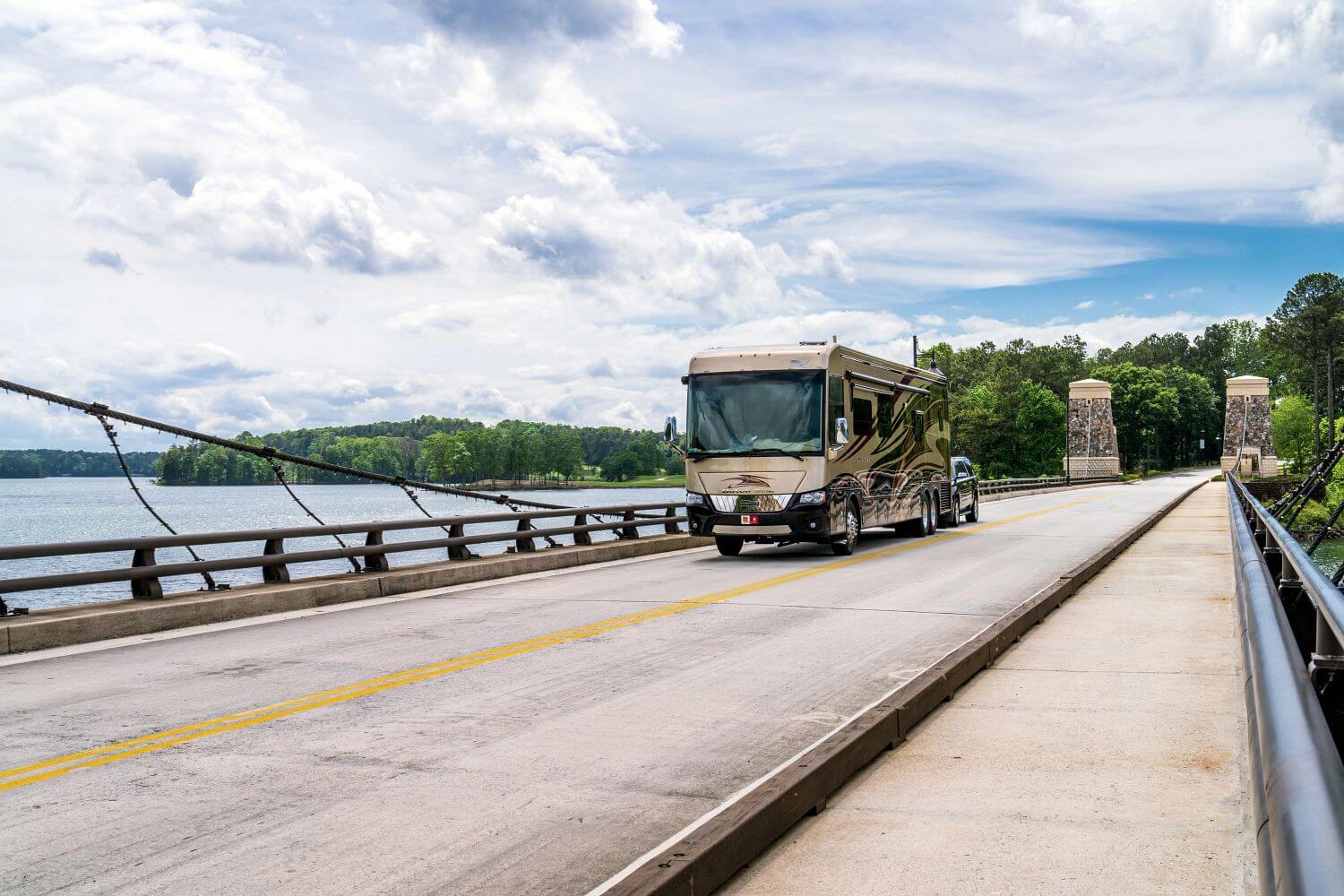
The first step is to get a better understanding of weight ratings for towing. Your owner’s manual should tell you your RV’s maximum towing capacity, which you should never exceed. That said, there are several terms related to your RV’s towing and carrying capacity, so let’s quickly define and identify the most important ones.
- UVW stands for unloaded vehicle weight–also commonly known as dry weight when looking at boat specifications.
- GVW is gross vehicle weight; i.e. the combined weight of your RV, cargo, liquids, and passengers.
- GVWR stands for gross vehicle weight rating. It is the maximum capacity of your RV accounting for passengers, liquids, and cargo.
- GCWR equates to gross combined weight rating. It is the maximum allowable weight of your RV, your boat (in this case), and all passengers, liquids, and cargo. Safe braking requires staying well under this rating when towing a boat.
- GAWR stands for gross axle weight rating and is the maximum amount your axles can handle. This is also broken down into RAWR (rear axle weight rating) and FAWR (front axle weight Rating).
- Max Tow Capacity is the maximum weight your RV is rated to tow.
- Tongue Weight is the weight on your hitch ball once your boat trailer is connected to your RV. This number shouldn’t exceed your RV’s RAWR.
How Much Does Your Boat Weigh?
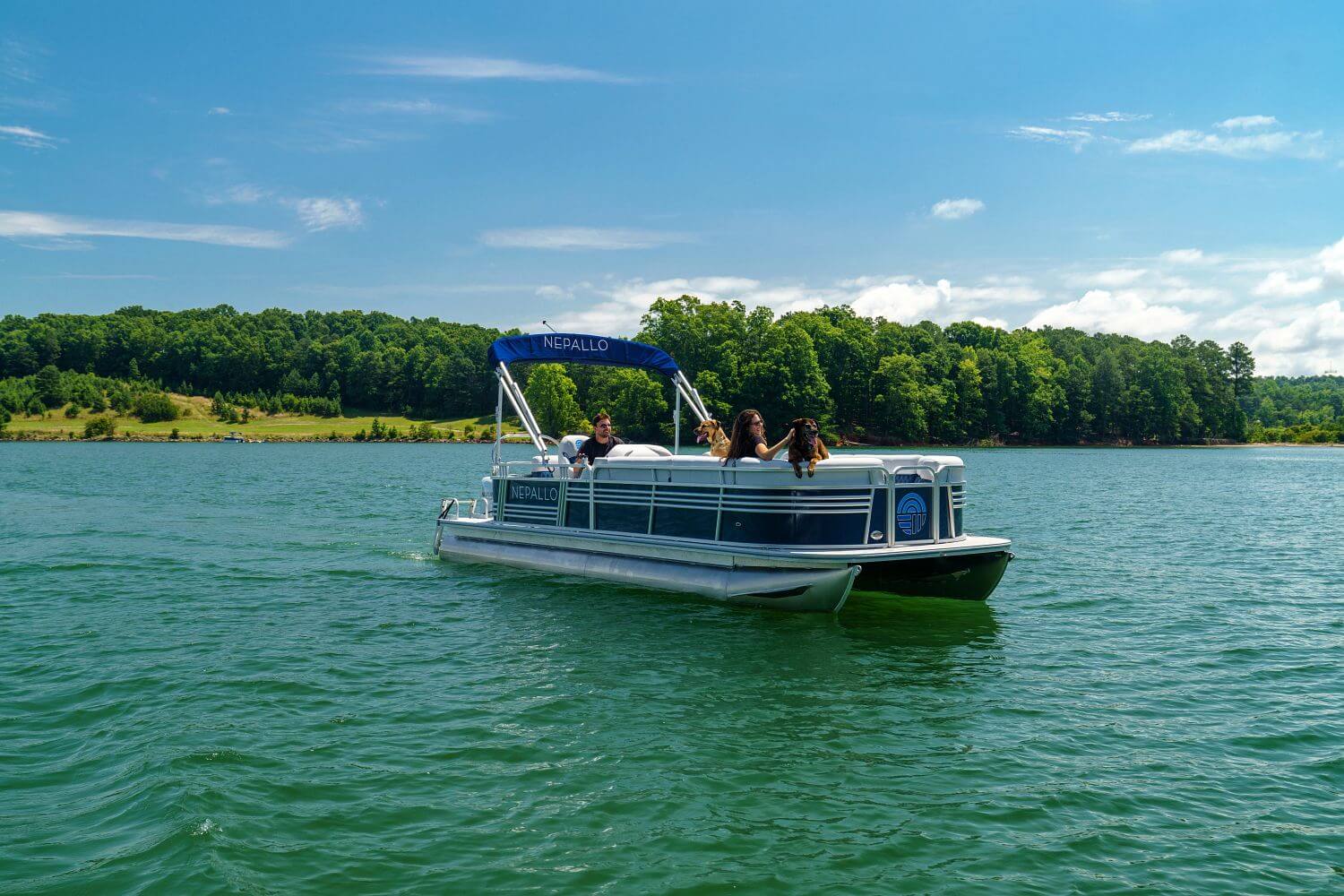
Once you know that capacity, check the weight of your boat. This should be in your boat’s owner’s manual. But if you’re like most boat owners, you have life vests, water skiing gear, boat safety equipment, and other accessories stored inside your boat.
If you plan on towing your boat with your motorhome, you probably want to bring these supplies along. So, the best way to get a better sense of how much your boat weighs with all this gear inside is to hook it up to your regular tow vehicle and take it to the nearest truck scales.
If this isn’t possible, add a minimum of 500 pounds to the listed dry weight of your boat to err on the side of caution. Use this number to check whether your RV’s maximum tow capacity will allow you to tow your boat safely.
If your current boat is a little too heavy for your RV, check out Nepallo pontoon boats to see if upgrading is right for you!
Do You Have The Right Trailer Hitch?
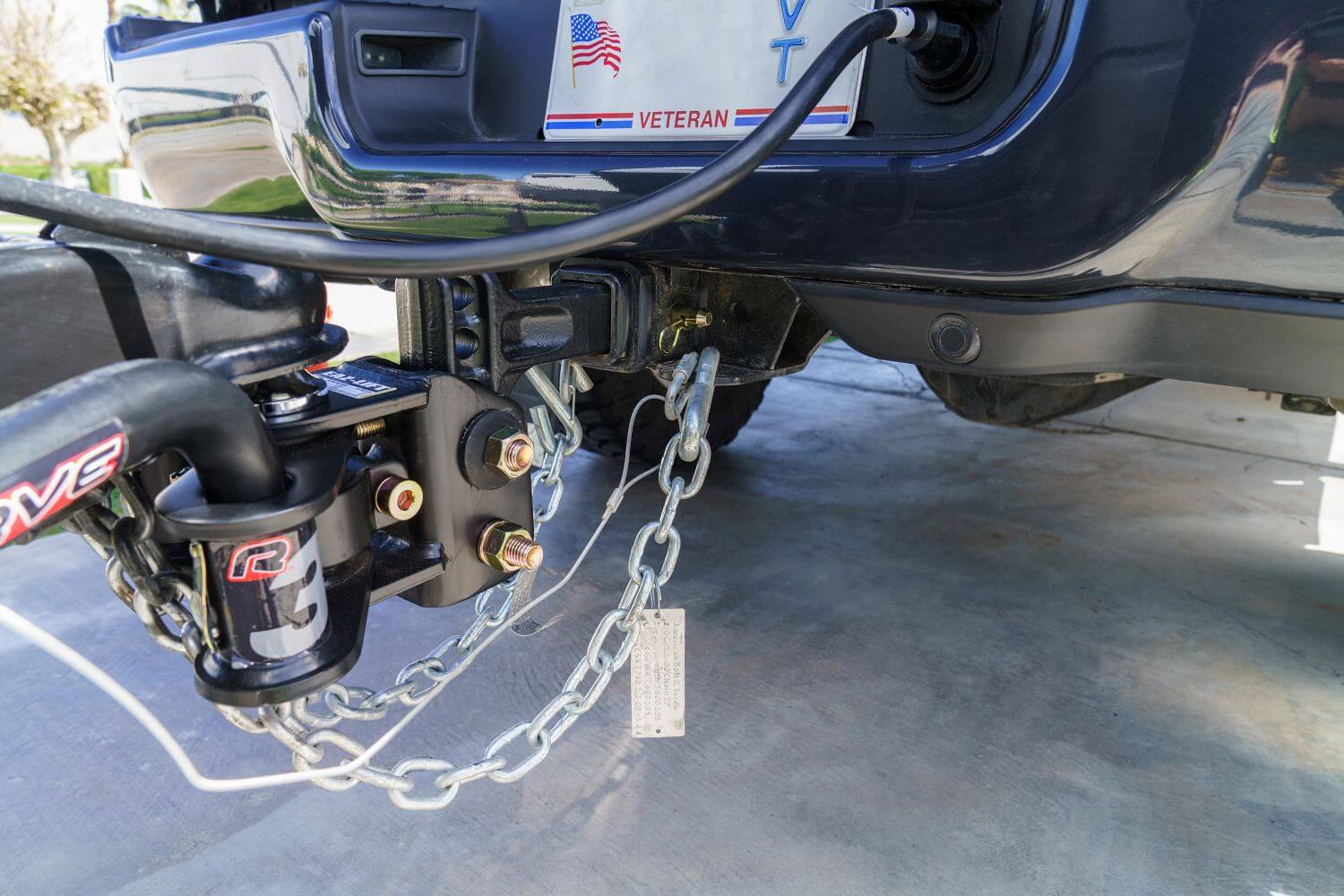
Trailer hitches are generally sorted into five categories depending on how much weight they are rated for. Use your boat weight and the maximum tongue weight your RV can handle to determine the right hitch class for your towing needs.
Here’s a quick breakdown of the five hitch classes:
| Hitch Class | Towing Capacity | Max Tongue Weight |
| Class I | 2,000 pounds | 200 pounds |
| Class II | 3,500 pounds | 300 pounds |
| Class III | 6,000 pounds | 600 pounds |
| Class IV | 10,000 pounds | 1,000 pounds |
| Class V | 12,000 pounds | 1,200 pounds |
So, in addition to checking that your boat’s weight doesn’t exceed your RV’s towing capacity, you must also choose your trailer hitch based on your boat’s weight.
What Other Equipment Helps With Safe Towing?
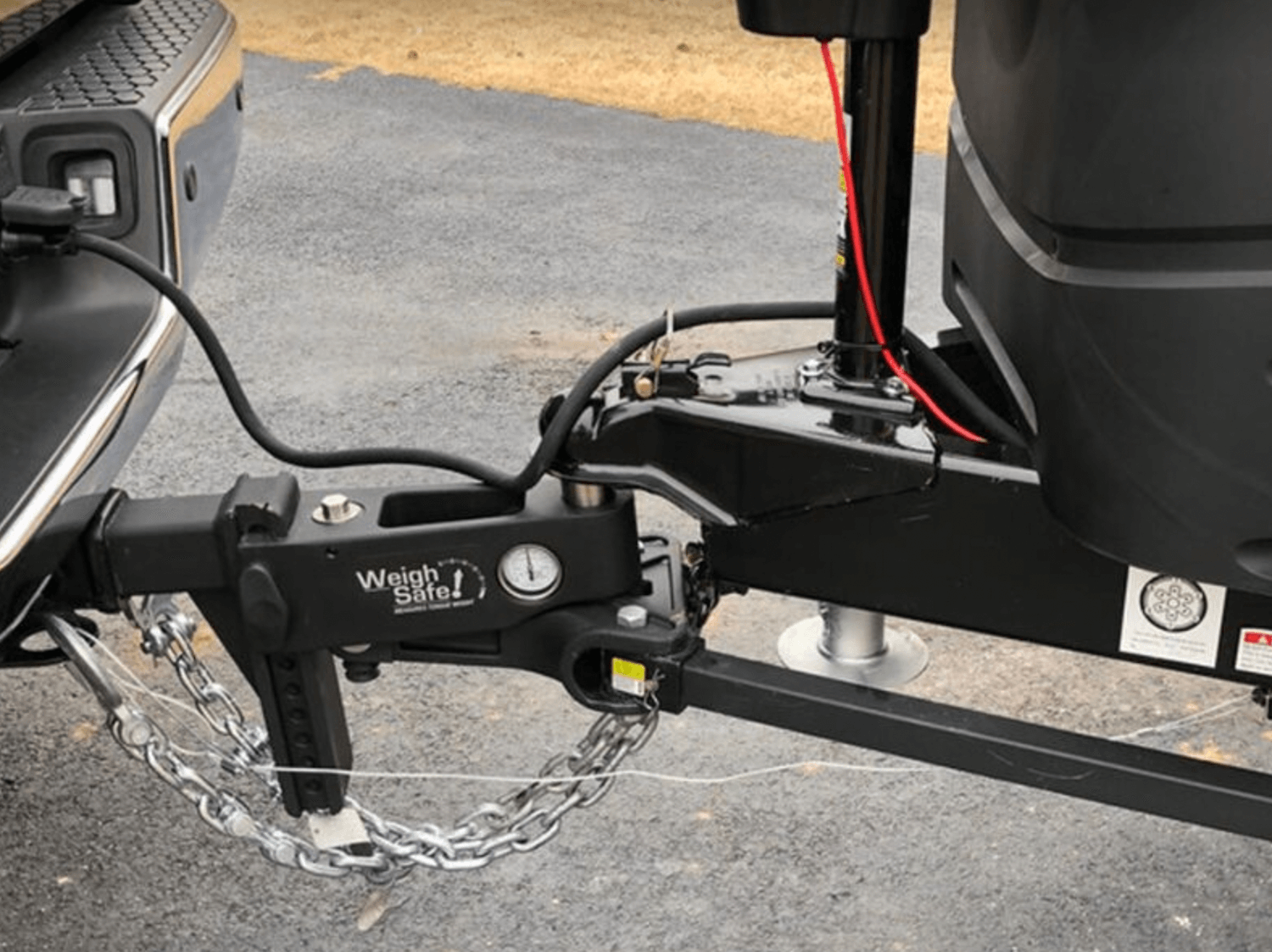
In addition to choosing the right hitch ball and hitch mount, there are several other accessories that will help with safe towing. A weight distribution hitch should be considered whenever towing a boat with your motorhome.
This type of hitch helps to reduce bouncing or swaying when towing at higher speeds. It can also help to level your boat trailer so that you’re towing as efficiently as possible. Like regular hitches, a weight distribution hitch must be rated for the weight of your boat and compatible with your RV’s tow ratings.
For more information on weight distribution hitches, check out these resources:
Are You Properly Insured?
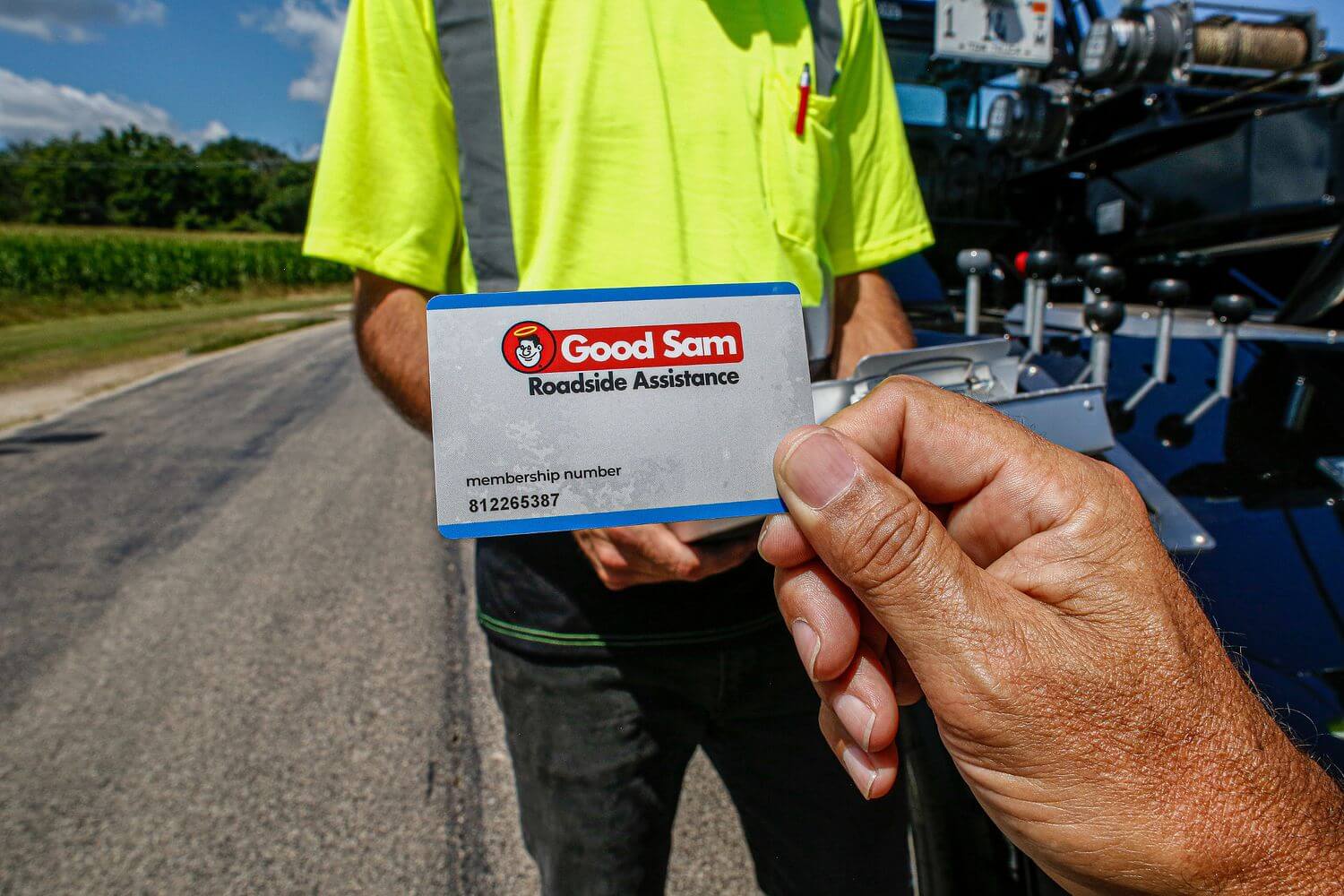
Before you tow a boat with your motorhome, it’s essential that you protect yourself in case of unexpected issues on the road. Good Sam Roadside Assistance offers a number of protection plans for RVers, travel trailers, personal vehicles, and even boat trailers.
Compare Good Sam Roadside Assistance RV Plans to find the right coverage for you.
Are You Trailering Your Boat Correctly?
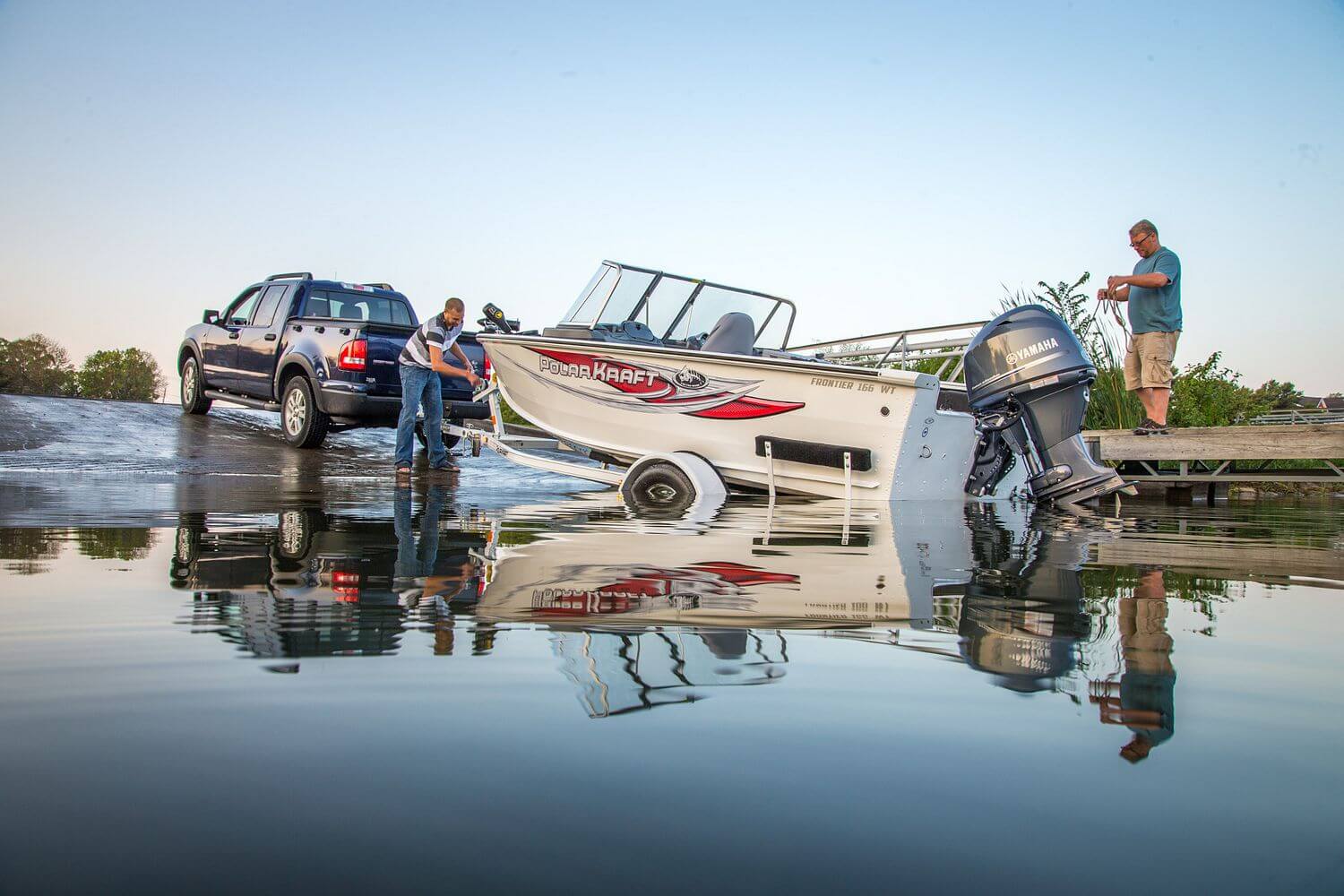
Another important component of safely towing a boat with your motorhome is making sure you load your boat onto your boat trailer properly after each trip. This requires centering your boat on your trailer and pulling it all the way up to the bow roller using your trailer winch.
A good strategy is to check your boat’s alignment on your trailer before you leave the boat ramp. That way, you can reverse and make adjustments without losing your spot if the ramp happens to be busy. Once your boat is all the way on your trailer and centered, make sure you secure all tie-downs before towing any distance.
Learn how to choose the right winch and consult our checklist for first-time boaters for more tips on proper trailering that will help you tow a boat safely with your motorhome.
Do You Know How To Tow Safely?
Once you’ve determined that your RV can safely handle your boat’s weight and you have the right tow equipment and RV insurance in place, here are a few tips to help you with safely towing a boat with your motorhome:
Find a Safe Practice Environment
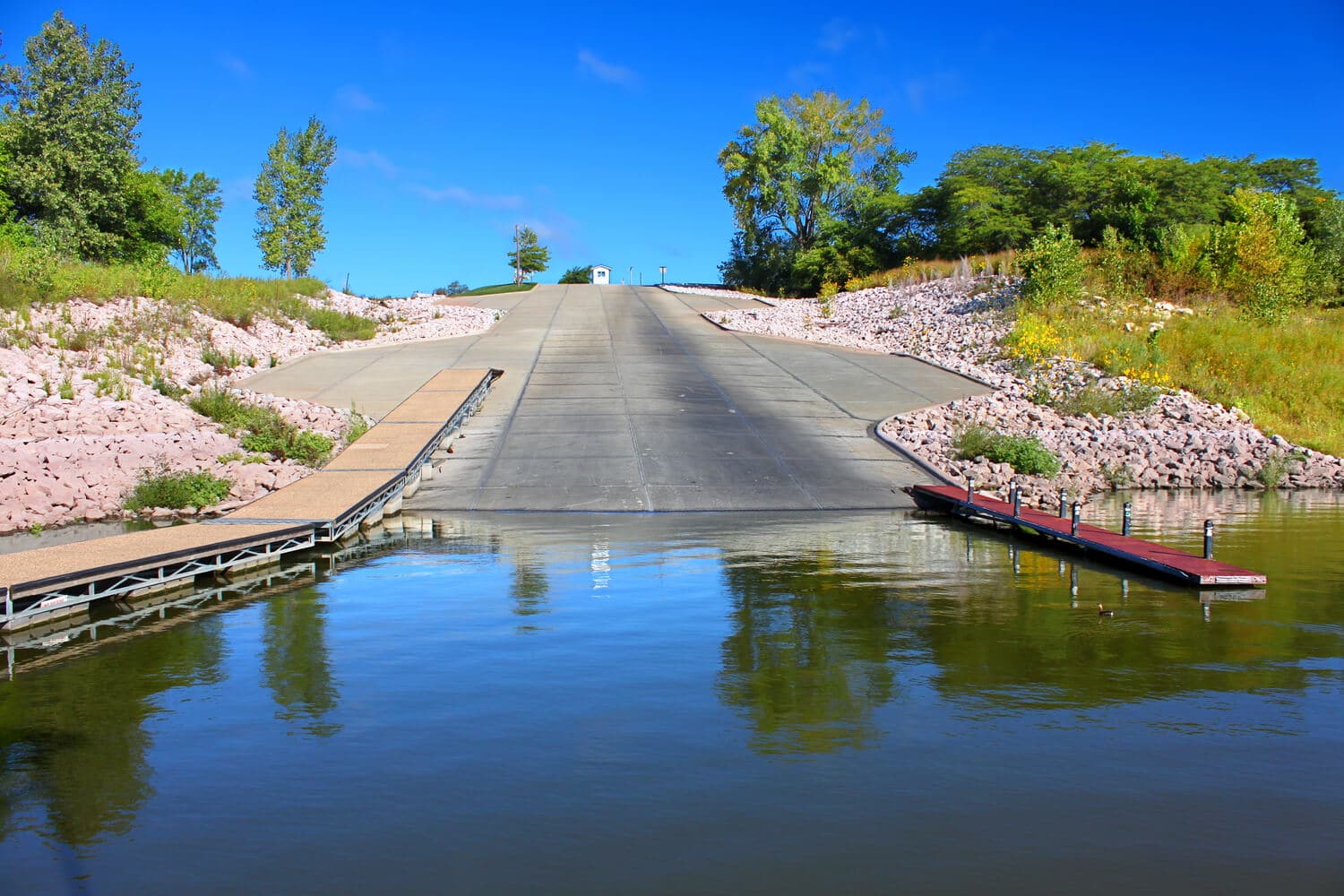
Before you take your RV and pontoon boat (or any boat for that matter) on a long-distance RV trip, take the time to practice towing. Head to your nearest boat ramp on an off-day to practice making wide turns, maneuvering into parking spaces, and backing your boat down the ramp.
These skills may be required in situations with a lot of onlookers, so practicing in a stress-free environment goes a long way towards safe boat towing when more eyes are likely to be on you.
Check Your Boat Trailer
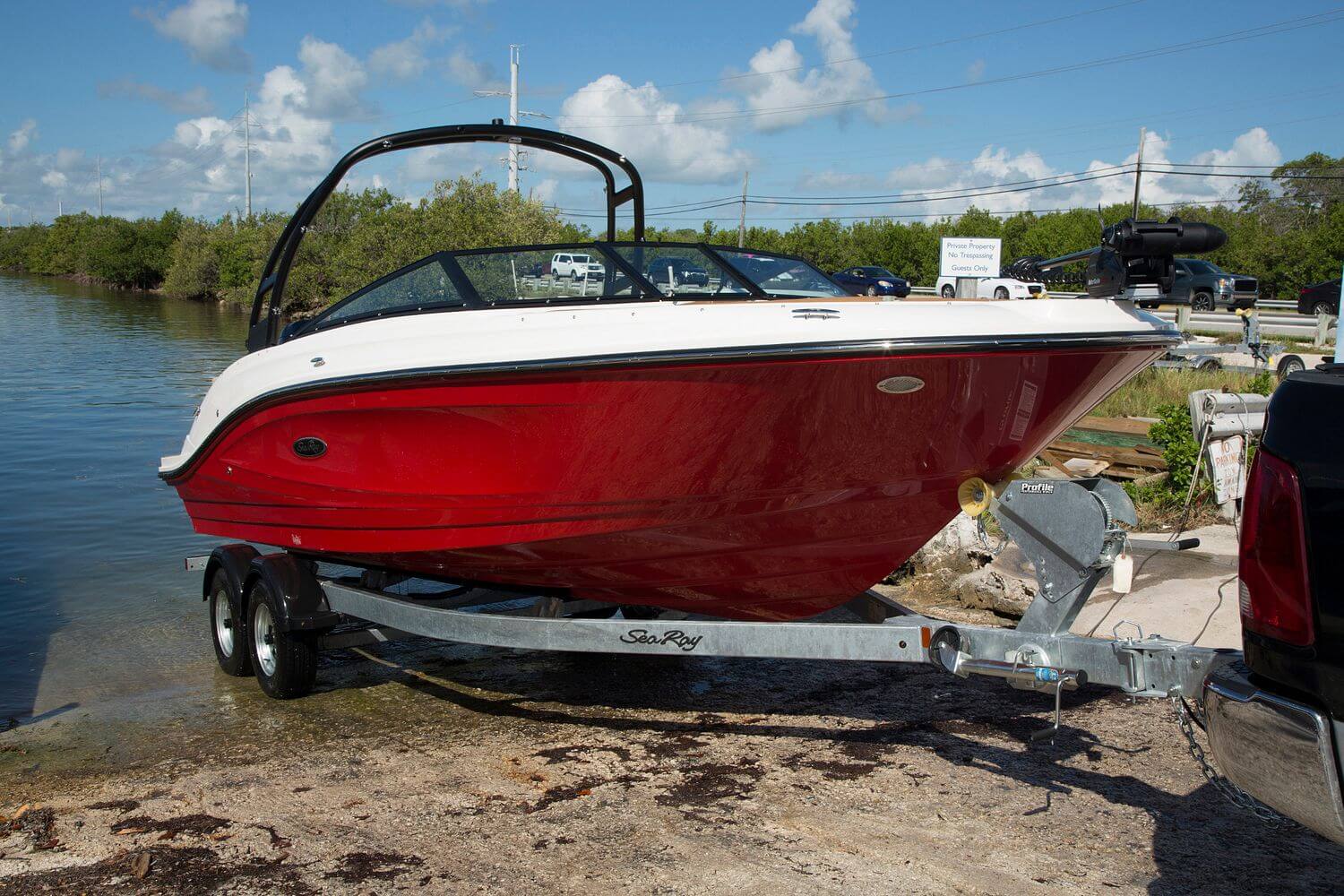
No matter how many times you’ve trailered a boat, checking trailer lights, turn signals, hitch accessories, and other trailer hardware is a must before you tow. Additionally, make sure your trailer tires are inflated to the recommended PSI and inspect to make sure the rims aren’t damaged.
This step should also include an additional inspection of your hitch connection to make sure your trailer is properly secured. Also, make sure everything inside your boat is secured in a storage compartment, and, if you have a boat cover that is rated for trailering, make sure your cover is secured before towing.
Make Sure You Can See Behind You
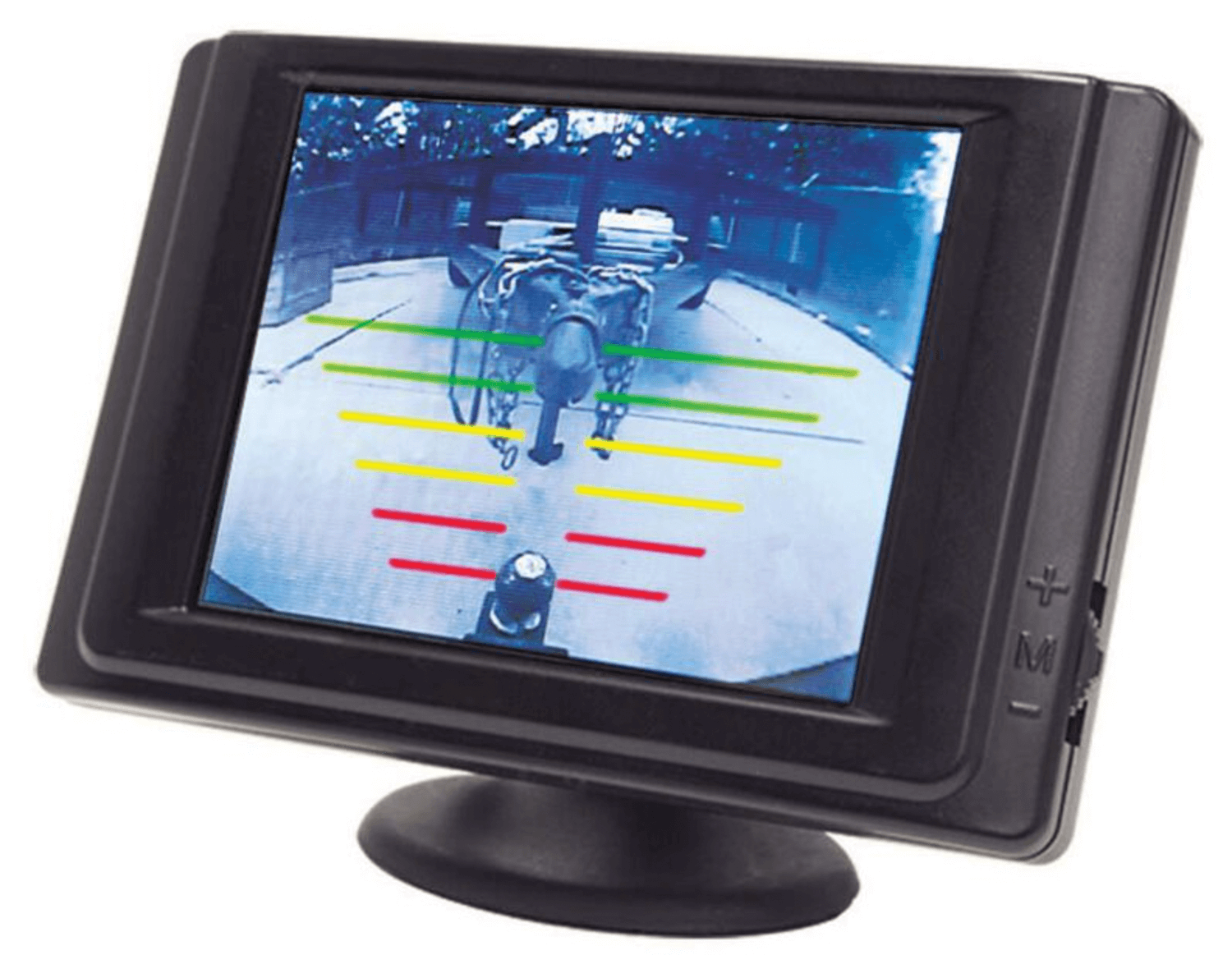
Whether you install a backup camera or extended side mirrors to accomplish this, be sure you can see your boat behind your RV. This is important when driving straight as well as when you’re backing up into a campsite or down a boat ramp.
Follow at a Safe Distance
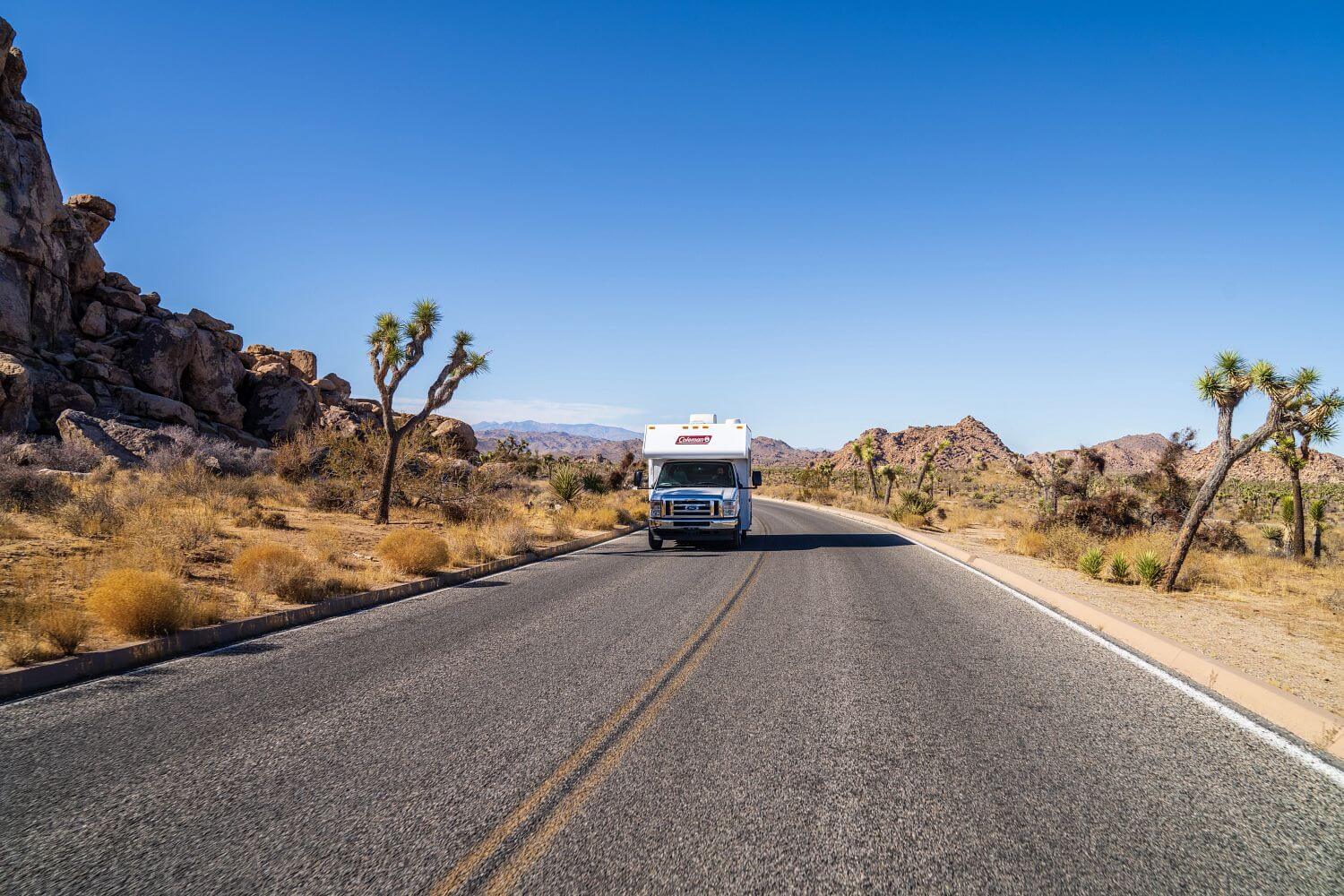
RVs already require more time and distance to slow down and come to a stop. When towing a boat with your motorhome, you need to leave even more space between your RV and the vehicle you’re following.
As a safe rule of thumb, you should allow at least one second of distance for every 10 feet you are driving. For example, a 30-foot RV towing a 20-foot boat with a 5-foot trailer tongue/hitch between the two will have a total vehicle length of approximately 55 feet, which would require a minimum of 5.5 seconds of following distance.
Always err on the side of caution to make sure you have plenty of room to slow down and stop as needed. Giving yourself plenty of space will also reduce wear and tear on your trailer brakes and bearings.
Employ a Spotter
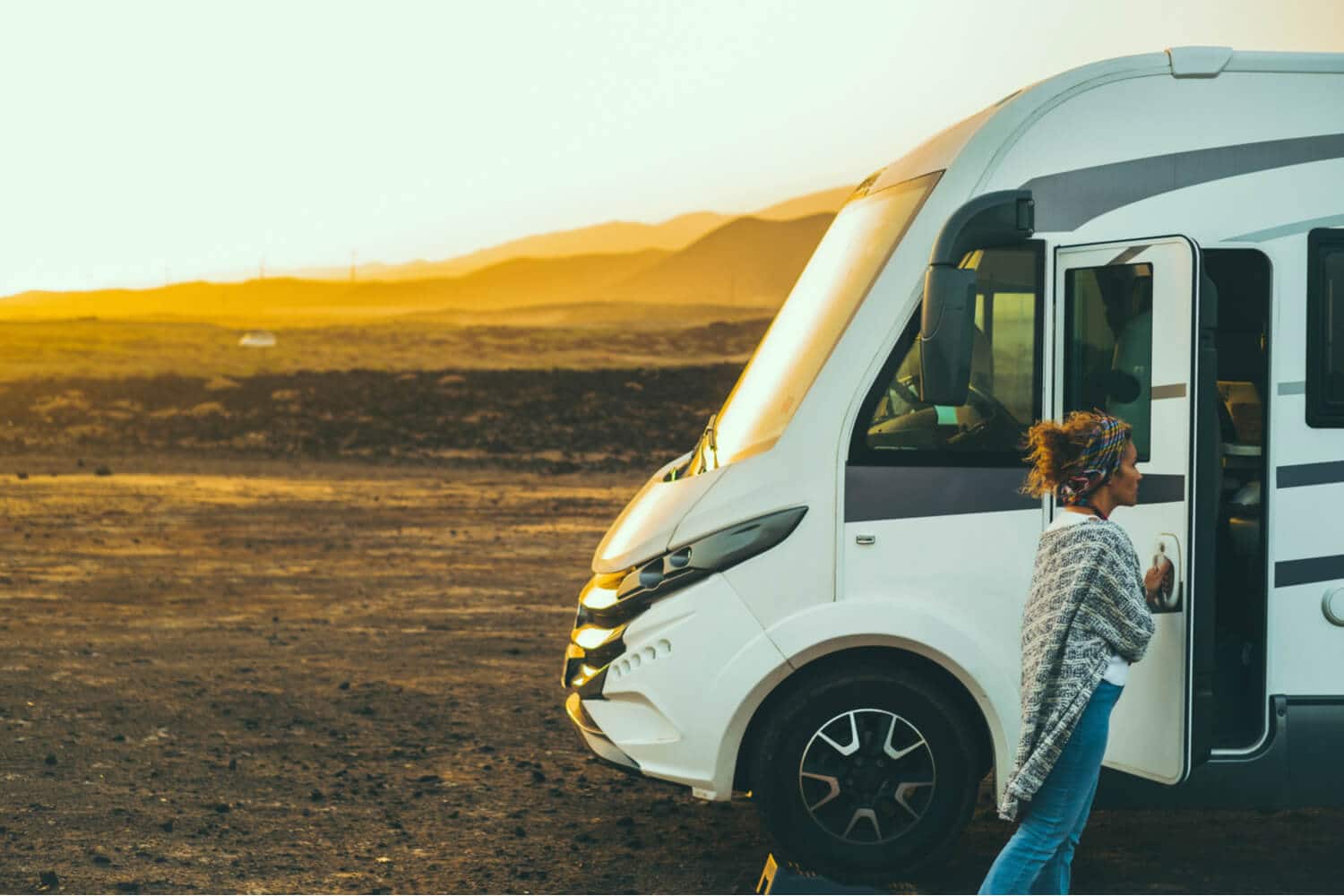
Okay, so you might not have to employ this person in a traditional sense. Hopefully, some time on the water is enough compensation, but it’s always a good idea to have someone outside your RV helping you spot obstacles whenever you’re backing up or maneuvering in tight spaces.
Come up with a set of verbal and physical signals that you both agree on (i.e. to the left, to the right, forward, backward, stop). This will help you communicate effectively to avoid accidents and also make you look like pros at the next boat ramp you visit.
If you want to bring your boat on your next RV adventure, it’s certainly an option. You’ll just need to do your due diligence to make sure your RV can safely tow your boat and you’re taking all the precautions possible to ensure safe towing.
Are you experienced at towing a boat with your motorhome? If so, share more info on the type of RV and boat you’re working with, as well as any additional tips you might have, in the comments below!

